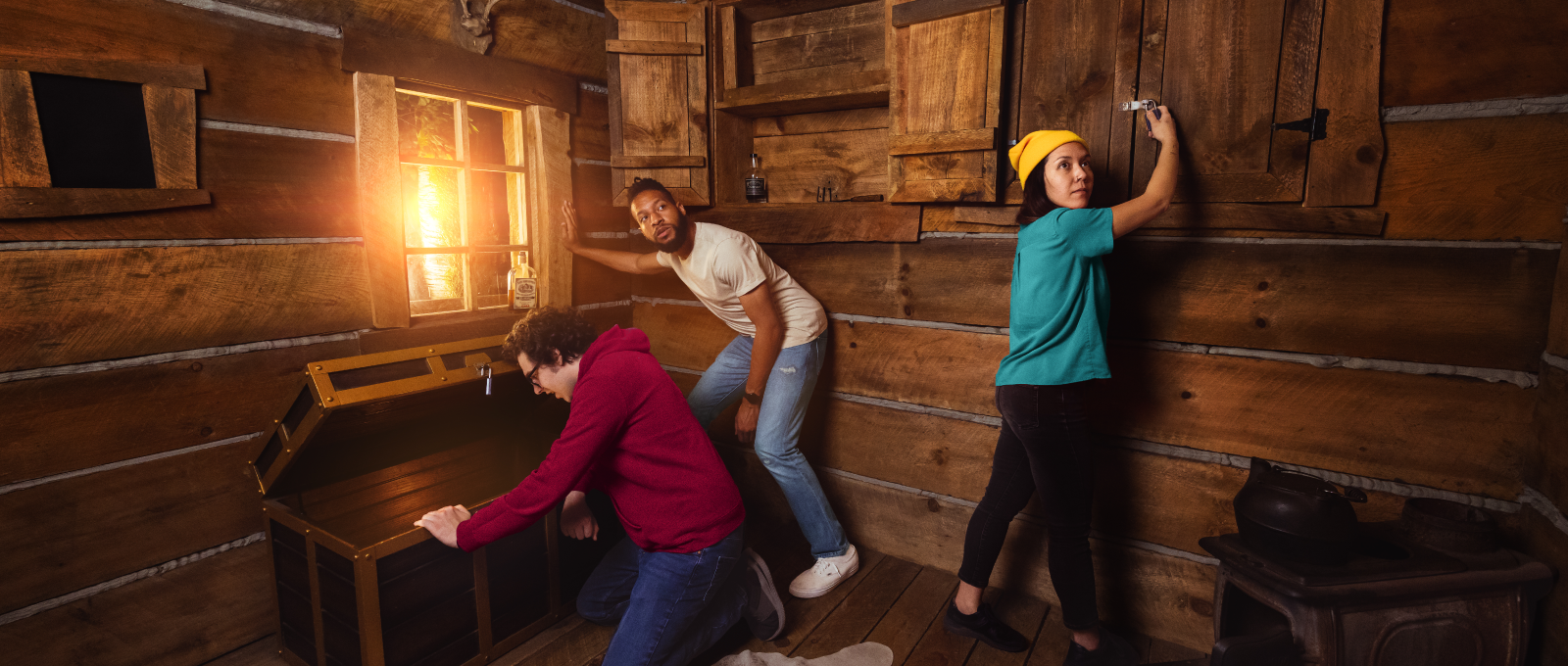Escape Room Minneapolis Mall of America-- Immersive and Enjoyable
Team Strategies: How to Collaborate Effectively in a Retreat Area
Browsing the intricacies of a getaway space requires even more than simple excitement; it calls for a well-coordinated technique based in clear interaction, calculated role assignments, and adept time administration. Groups have to proactively listen per member's insights, designate functions that line up with private staminas, and maintain regular check-ins to ensure emphasis and protect against redundancy. By fostering a setting that values communication and versatility, groups can considerably increase their efficiency and success rates. The nuances of these strategies can change the experience, but just how precisely can they be implemented to optimize the potential for success?
Establish Clear Communication

To assist in clear communication, it is essential to assign a central factor of contact for details circulation. Brief, focused updates from each team member can keep the group notified without overwhelming them with info.

Designate Duties Tactically
While clear communication sets the structure for reliable team effort, appointing duties strategically makes sure that each staff member's strengths are used successfully. In a getaway room situation, the time-sensitive and intricate nature of difficulties necessitates an efficient method to job delegation. By determining and leveraging private competencies, groups can enhance their analytic capacities and enhance overall performance.
First, evaluate the special abilities and attributes of each individual. A person with an eager eye for detail could stand out in locating surprise objects, while a rational thinker could be much better matched to addressing problems. It's just as crucial to have a leader that can supervise progress, manage the timeline, and make definitive calls when essential. This role frequently calls for strong organizational and social skills.
Second, make certain that duties are flexible and versatile. As brand-new challenges emerge, the group has to be able to pivot, reapportioning tasks as called for. This versatility assists maintain momentum and prevents traffic jams that might occur because of inflexible duty jobs.
Inevitably, a tactical technique to role task not only optimizes the strengths of each employee however likewise fosters a cohesive environment, driving the team towards a successful getaway.
Make Use Of Diverse Abilities
Acknowledging and taking advantage of the varied abilities within your group can substantially boost your efficiency in a retreat space. Each employee brings unique strengths to the table, and efficiently leveraging these capacities can speed up analytic and boost general performance. For instance, a staff member with strong logical abilities could stand out at understanding complex codes or patterns, while one more with eager observational abilities may promptly detect covert hints that might forget.
Motivate group members to articulate their insights and concepts immediately, making sure that all possible remedies are thought about. Furthermore, appointing tasks that align with each participant's strengths can protect against traffic jams and ensure that progression is continuous.
In addition, variety in skills typically converts to diversity in thinking styles, which is very useful in an escape space setup. While some challenges may call for sensible reasoning this post and precision, others may gain from imaginative and lateral reasoning. By identifying and leveraging this variety, groups can attend to a more comprehensive variety of challenges better, thereby boosting their opportunities of a successful retreat.
Manage Time Efficiently

First, designate preliminary mins for a quick study of the room. Determine visible problems and separate tasks based upon staff member' strengths, ensuring that no one is still. Set interior time checkpoints to examine development regularly; for instance, purpose to have half the puzzles resolved by the mid-point of the game. This method can aid keep the team focused and avoid time from escaping check this unnoticed.
In addition, prevent passage vision. If a puzzle is taking too long, rotate employee or proceed to another obstacle, returning later with fresh viewpoints. Interaction is vital-- keep every person updated on fixed problems and continuing to be jobs to Discover More Here stay clear of redundant initiatives.
Lastly, make use of any kind of tips or hints sparingly yet strategically - best escape room. Recognizing when to ask for aid can conserve beneficial time. By sticking to these time management principles, teams can significantly improve their possibilities of an effective and enjoyable getaway area experience
Debrief and Show
Reflection is an essential aspect of team development and enhancement in the context of getaway spaces. As soon as the difficulty is completed, whether successfully or not, it is vital for the group to involve in an organized debriefing session. This procedure enables staff member to evaluate their performance, identify strengths, and identify areas for enhancement.
Begin the debrief by discussing what worked out. Highlight details instances of efficient communication, analytic, and partnership. Identifying these favorable behaviors enhances them and motivates their repetition in future obstacles.
Review minutes of complication, miscommunication, or ineffective methods. Motivate an open and positive dialogue where group members can share their point of views without anxiety of objection.
Final Thought
Finally, effective collaboration in an escape space is based upon clear communication, strategic role tasks, the reliable use of varied skills, and skilled time management. Routine check-ins and organized debriefings are vital for maintaining focus and cultivating continuous enhancement. By creating a natural and flexible team setting, the likelihood of efficiently resolving puzzles and attaining the goal of escaping the space is considerably enhanced. This technique not only makes certain success however also advertises collective development and learning.